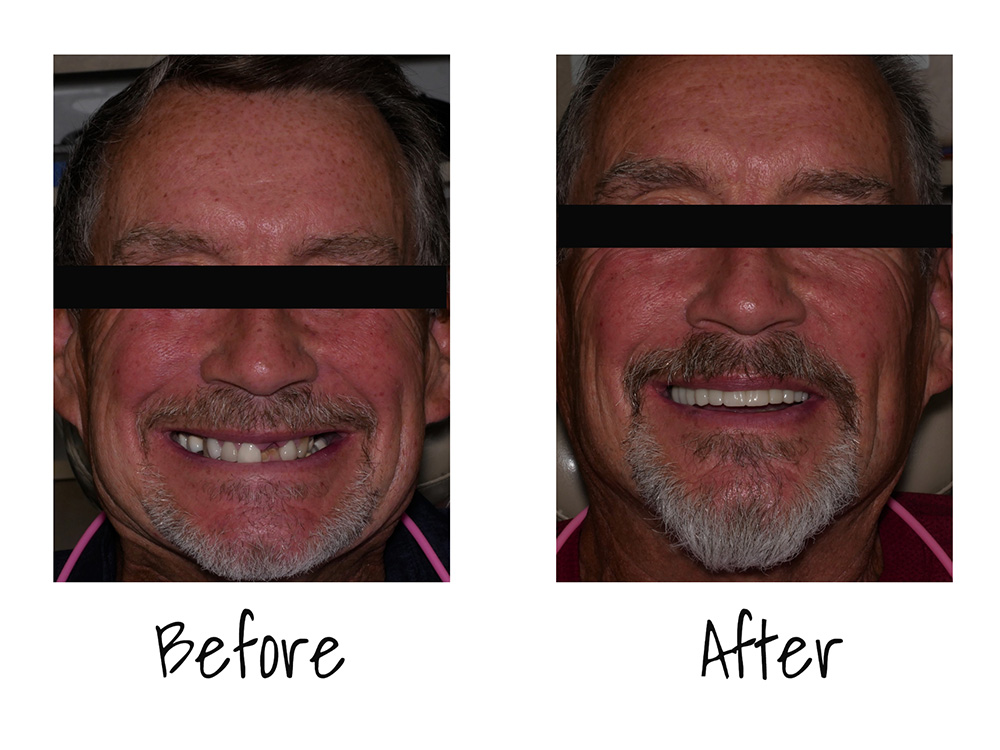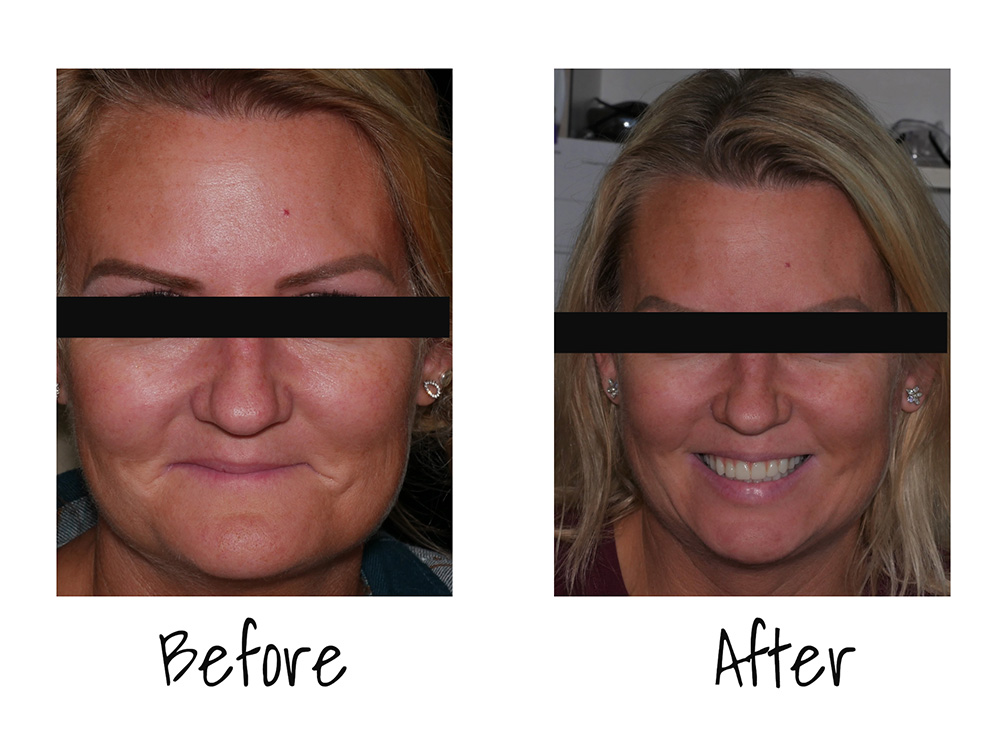Dentures
Dentures are restorative dental appliances used when someone has lost many or even all of their teeth. We work to make sure our patients have a reliable, natural, and functional replacement option when they've lost teeth.
Dentures in Twin Falls, ID
Dentures are used when a person is missing all or most of their natural teeth. This could be the result of an injury or declining oral health. Dentures let patients eat more of the foods they want, without pain and without worry. They are easy to use and offer a fast and effective solution to deal with severe tooth loss.
Dentures are prosthetic teeth secured to a gum-colored base. There are many options when it comes to dentures, including full, partial, and implant-supported dentures. We encourage you to make a consultation appointment with us so that we can discuss all of your options and find the best one for you.
Schedule Appointment Call For Your Consultation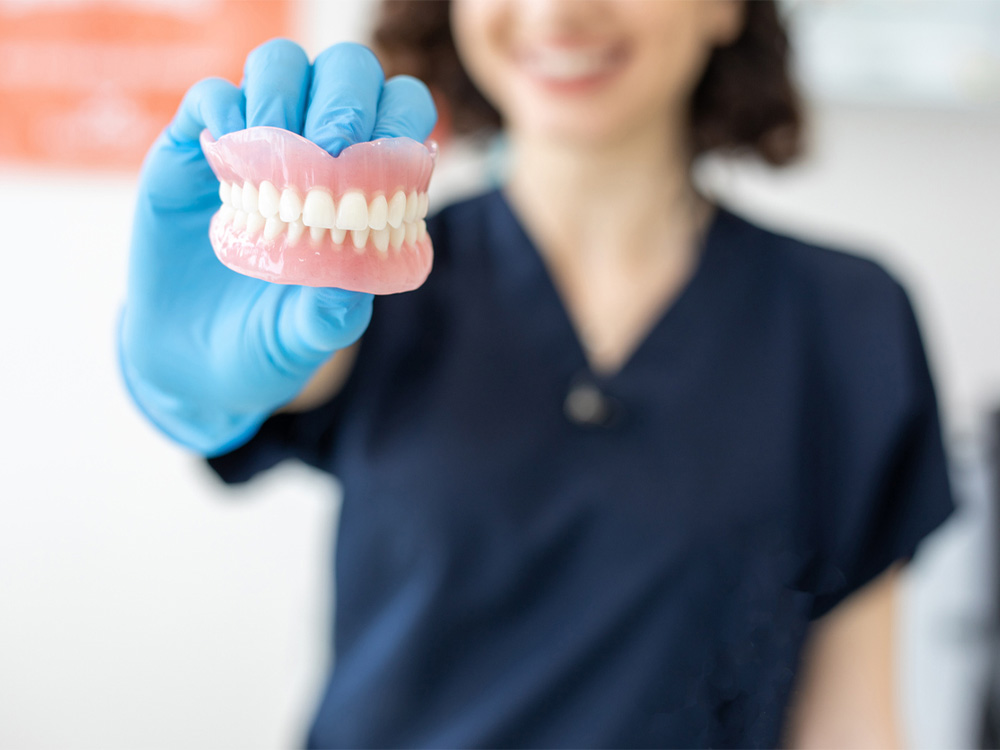
How Much do Dentures Cost?
The cost of dentures varies within a wide range depending on the materials used, the type of dentures needed, and whether they are implant-supported. Other factors such as insurance coverage, whether teeth need to be extracted, and the type of implants used, if any, also affect the end cost. We are always happy to give detailed estimates throughout the treatment process. The cost of dentures varies between:
- $700 and $20,000
If you are uninsured and concerned about the cost of dentures, we recommend you consider joining the Mint Dental Care Savings Plan to reduce the cost. Besides the benefits of 15% dentures and all other treatments, you can also rest easy knowing that regular checkups are also covered through your membership.
See Our Dental Savings Plan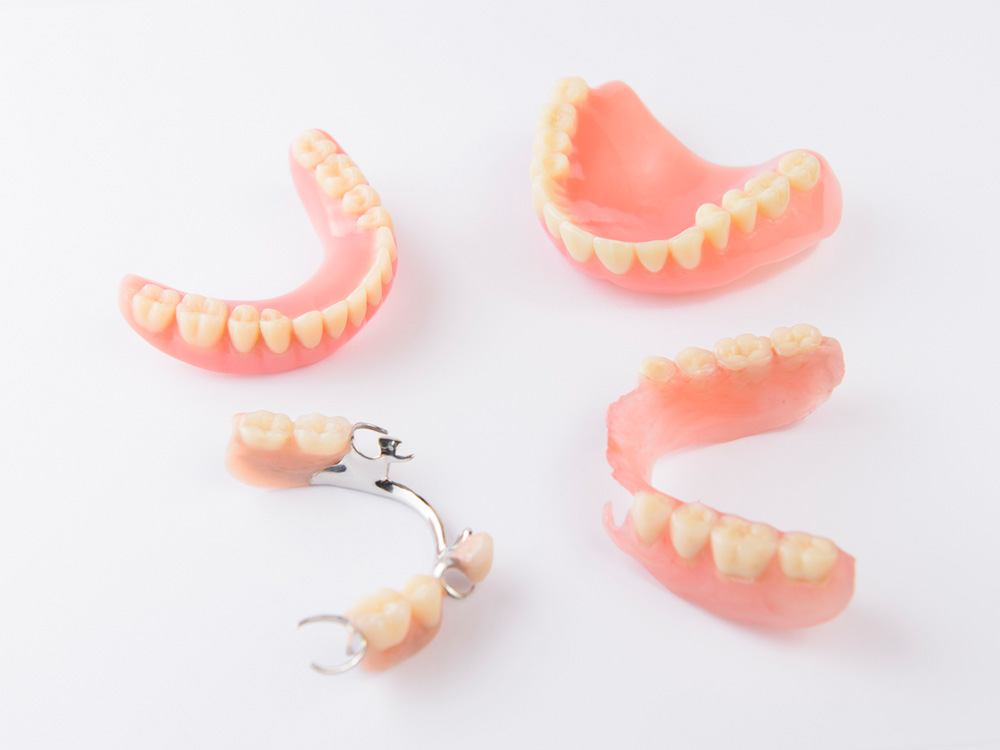
The Dentures Process
- Consultation & Exam. We conduct an initial exam to make sure dentures make sense for you and your mouth. Dr. Funk will examine your bone levels and gum health and, decide if any dental work needs to be done before removing forward. Then you and Dr. Funk can discuss if full, partial, or implant-supported dentures are the best option for you. The implant process varies from what follows and more details can be found on our dental implant page.
- Taking Molds & Measurements. Once an exam, a plan is made and any necessary treatments have been completed the process of creating your dentures can start. Dr. Funk will create molds of your mouth that your dentures will be made from. Measurements will also be taken aside from the molds to ensure that the size of the dentures will properly fit into your mouth and around your gums.
- Fitting Your Dentures. After your dentures have been fabricated, usually one to three months after the measuring appointment, we’ll have you in for a fitting appointment. This is to make sure that before your dentures fit and shape are finalized that they properly fit in your mouth. Any necessary adjustments can be made at this point to make sure that the look, fit, and feel of your dentures are just right.
- Getting Used to Your Dentures. After you have your dentures there will be a period of adjustment. This means getting used to eating with them, the fit itself, and the maintenance that they require. Our staff will provide more detailed care instructions and maintenance tips during the final stages of this process.
Before and After Dentures
See the results that a well-fitting pair of dentures can make in the look of not just a smile, but your entire face.
Your Denture Expert in Twin Falls
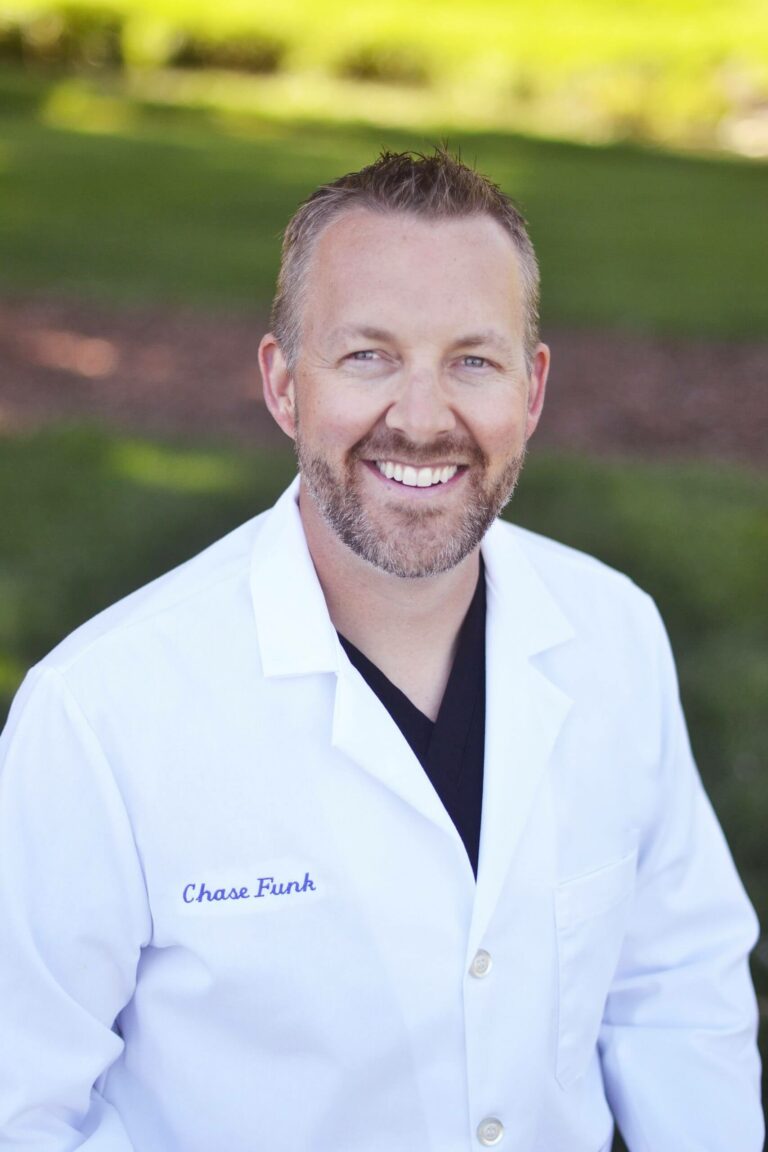
Dr. Chase Funk
Dr. Chase Funk is passionate about providing the best quality care and education possible to all of his patients. Dr. Funk is an Idaho native, a family man, and an alumnus of Idaho State University. He takes continuing education courses covering all aspects of dentistry, including dentures, to supplement his years of experience. Dr. Funk is a member of the American Dental Association and the Academy of General Dentistry.
Common Questions About Dentures
-
What can I do to keep my dentures in place?
There are many over-the-counter adhesives available to help keep dentures in place. Many of our patients find that they have to try a few different adhesives before they find one that works best for them. Keeping your dentures clean and just simply adjusting to using them for chewing and speaking are also important. Our patients generally report that they have fewer issues with keeping their dentures in place with time.
-
Are dentures painful?
Immediately after you first get dentures, sore spots can occur on the gums. If that happens you will need to come into the office for an adjustment. Your dentures shouldn't cause any pain or discomfort and if they do that is just a sign that they need to be adjusted.
Over a long enough period of time, the shape of your gums will change and your dentures will not fit right. Generally, adjustments can be made before a new mold would be necessary.
-
Can I eat what I want with dentures?
Traditional dentures can move around in the mouth while eating and make eating certain foods more difficult. You should be able to eat most things that you love, however. Some of the foods that might be more difficult to eat, and which could put stress on your dentures and gums, are foods like corn on the cob, tough meats, nuts, and apples. There are also recommended foods to eat while you adjust to your new dentures, softer foods such as yogurt and apple sauce, while you transition to firmer foods.
-
How often do dentures need replaced?
Traditional dentures can last a long time, however, they do require maintenance over time. After time your gum tissue and bone shrinks and the inside of dentures need to be relined to fit the inside of your mouth. If they chip or break, either through eating or an accident, they may need repairs as well. This shrinking of the gums and bones is one reason we tend to recommend implant-supported dentures and dental implants to our patients, dental implants stabilize bone levels.
-
What are partial dentures?
If you've lost one or more teeth, chewing and smiling can be more challenging due to the gaps left behind. Partial dentures are a cost-effective way to replace missing teeth and fill in the spaces, improving chewing ability and confidence in your smile. A partial denture can also help prevent your remaining natural teeth from shifting, reducing the risk of future tooth loss.
Most partial dentures have a thin metal framework that sits close to the gums for a smooth, non-bulky feel. The framework is supported by your natural teeth to provide a secure and easy-to-use appliance. Where teeth are missing, natural-looking replacement teeth are attached to the frame, and gum-colored acrylic is used to make the appliance blend in with your mouth. At Mint Dental we know that your smile and your needs are unique to you and we work to create a comfortable and aesthetically pleasing solution for you.
Thanks to technological advancements, implants can also be used to support removable partial dentures, improving the fit while making the appliance smaller. While dentures come with some challenges, especially for new wearers, our goal is to minimize these as much as possible.
-
What are full dentures?
Sometimes, dental problems like cavities or gum disease can become too severe to manage effectively. In these cases, full dentures can be a cost-effective and efficient way to restore your ability to eat, speak, and smile.
A complete denture is made up of a thin acrylic base that sits on top of your gums and is designed to match the color of your gums. The base is fitted with porcelain or acrylic replacement teeth that look like natural teeth. Our team has the expertise to make sure your replacement teeth look natural and fit your smile. We can customize your appearance, whether you want a completely new smile or just want to restore your original one.
Although dentures have been successfully used for many years, modern technology now provides better options for improving fit and appearance. In some cases, dentures can be more securely attached to the jaw using dental implants, which are placed in the jaw and connected to the base of the denture. This connection can be designed to allow the denture to be removed at times or to provide permanent fixation. Implant-supported dentures tend to provide better retention, a more natural look, and a longer lifespan. Your dentist can explain these options and help you understand how they can improve your experience with dentures.
More Questions or Ready to Request an Appointment?
If you have more questions about dentures, please contact our Twin Falls, ID office. We are always happy to help you better understand any of our services.
